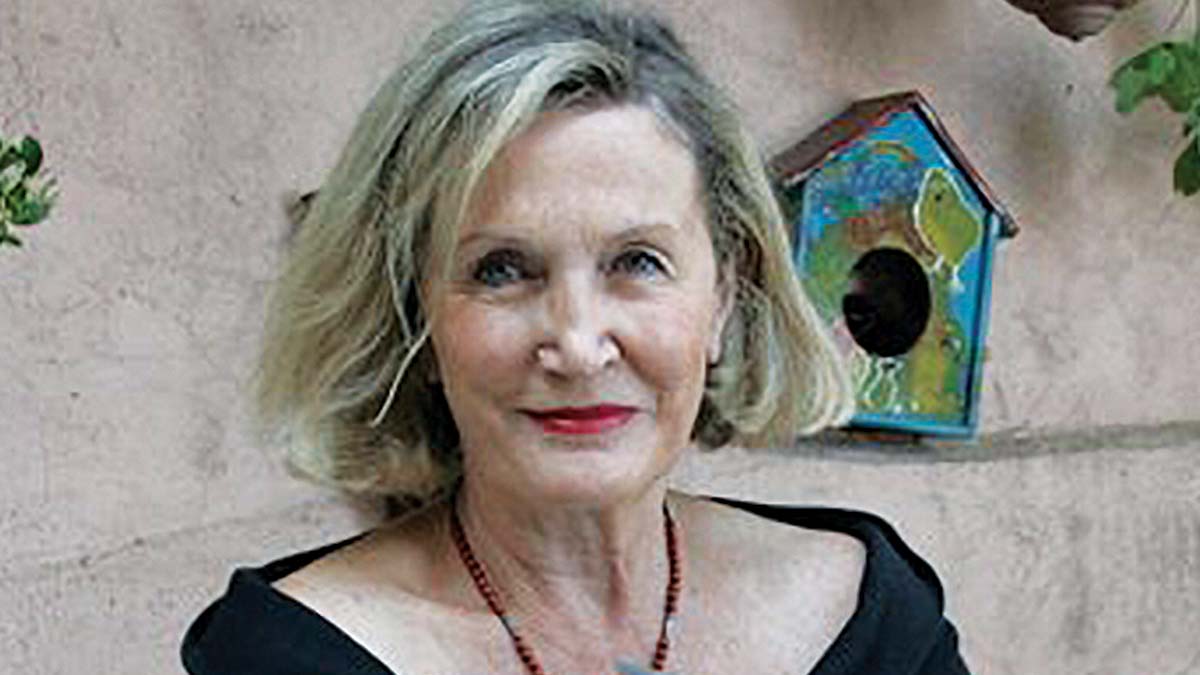AS I SEE IT
MARIANNE HERON
A lot of Christmas is about memories and tradition. We were busy making a Christmas cake in a cookery class where I volunteered as a helper last week. “Were you ever told not to slam doors when the cake was in the oven?” I asked “Oh yeah, you’d be in big trouble with your Mam, because the fruit in the cake would sink!” came back a chorus from of the class.
They followed up with recollections about taking turns to stir the cake and make a wish, putting charms in the pudding and the way the baking and making would be stored on a top shelf and regularly doused with whiskey.
That’s the kind of Christmas I like to remember: simple rituals like trying to get the fairy lights to work, midnight Mass, the excitement of waking to feel the weight of a sock stuffed with presents at the bottom of the bed and the family feast. That kind of Christmas is disappearing, eaten away each passing year by ballooning. commercialism where festive retailing gets into gear before the witches and pumpkins of Halloween are off the shelves.
This year, though, weren’t we hoping to make it a real Christmas after the grim years with Covid?
A mindful one, in the face of the cost-of-living crisis, climate change and the war in Ukraine; one about family and friends and things we hold dear. But no, just at the very time we were dusting off our values with the tree decorations, we hear that Christmas isn’t Christmas any more.
It’s the Winter Festival, lit up by the Winter Lights.
St Bridget has just had her day in February recognised, but Christ has lost his.
The trouble with renaming things is that it erases the associations and images belonging to the previous name. Language revisionism can be a form of colonial appropriation; think of Brian Friel’s Translations where the meaning of Irish names are lost to English. It can mess with your mind, Putin doesn’t refer to invasion or war in Ukraine, but rather calls it “a special military operation’. It can be a way of obliterating past history, like renaming Sellafield, site of a 1957 UK nuclear disaster, Windscale. The back story gets lost.
The Christmas we have is a great rolling stone of traditions stretching back long before the birth of Christ and gathering pagan beliefs along the way. Jesus’ birthday may have been shifted to fit with the Roman festival of Saturnalia to honour the God Saturn, The celebration of the winter solstice on December 21 and the death and rebirth of the sun is common to many cultures including neolithic Ireland and celebrated in passage tombs like Newgrange built by the Tuatha De Danann. The way greenery is brought into the house is a Norse tradition and Santa owes his existence to St Nicholas, an early Christian Greek Bishop and bringer of gifts.
Renaming the festival could be a nod of respect to other cultures as Ireland becomes more multi- cultural but surely we should expect the same recognition for our own culture? Or is it another indication that we are on the way to becoming a post- Christian society?
In the UK the number who define themselves as having no religion has passed the number who define themselves as Christian for the first time, according to the latest census. Here, the number who define themselves as having no religion is biggest among the younger age group (12%). The majority still define themselves as Christian but the now non-practising believers outnumber church-goers. We have privatised our beliefs and moved away from the institutional church.
The problem with renaming Christmas as the Winter Celebration is that so much or our lives are organised around Christian tradition: Sunday as a day of rest, Easter and Christmas festivals, the significant markers in our lives like christenings, marriages and funerals. It’s a bit like hacking off a chair leg and finding it doesn’t stand up when you sit on it.
Imagine all those nostalgic songs, like It’s Beginning To Feel A Lot Like Christmas, that will have to be rewritten: writing winter cards and buying winter trees. And what would become of Charles Dickens’ A Christmas Carol (written at a time in the 1840s when Victorians were re-evaluating Christmas,) to Ebenezer Scrooge and the spirits of Christmas past, present and yet to be?
Wishing folk a Merry Winter just doesn’t sound the same.

















